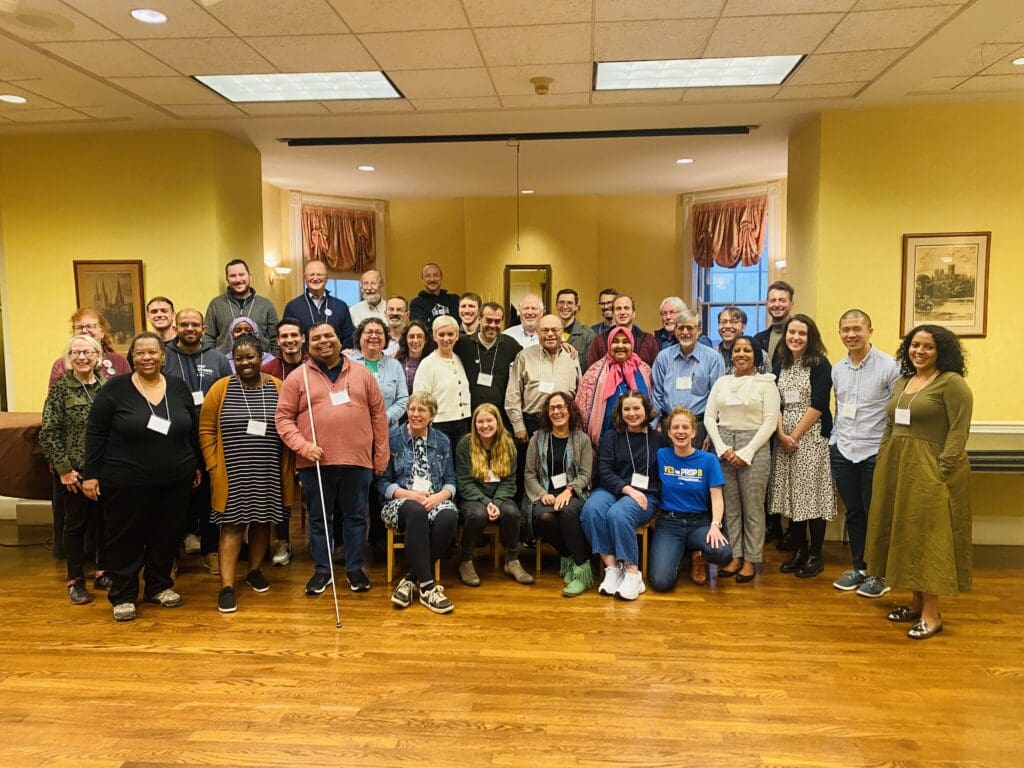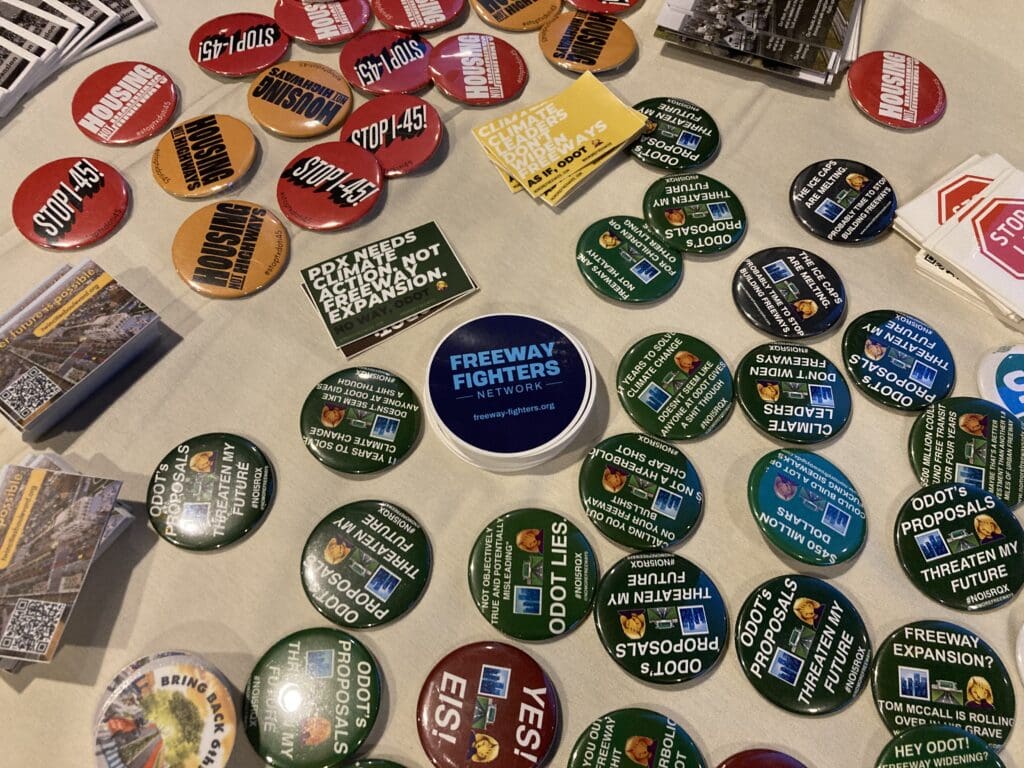
America has a highway problem. It also has freeway fighters from across the country working together to solve it. Last month, nearly 50 freeway fighting advocates gathered in Cincinnati, OH for the first-ever Freeway Fighters Grassroots Summit. Each advocate brought with them their experience campaigning to reconnect communities divided by highways and/or to stop new highways from causing additional damage. They traveled to Cincinnati both to inspire and learn from each other as well as collectively develop strategies that advance the national movement. For many, it was their first time meeting their peers from other cities and states.
The state of the freeway fighting movement: who’s fighting and why?
Over the course of two days together, advocates discovered the common experiences that compelled them to become freeway fighters.
For Adam Greenfield of ReThink35 (Austin, TX), the fight is about creating a better place to live for people living around highways. “I live three blocks away from I -35… I can hear the roar of the interstate highway in bed. I breathe in its toxic emissions inside my house. I have to cross it regularly and it is dangerous and scary to cross.”
Remedying injustices and empowering communities were also key factors. Sito Negron of the El Paso Streets Coalition cited “the inequity, the inherent unfairness of putting freeways through predominantly low-income communities” as one of his motivations. Suzanne Mayer of Hinge Neighbors, Inc. (Rochester, NY) wanted to make sure community members have power when it comes to decisions about what to do with highways. “If not us, no one’s going to do this. No one’s going to make sure that the voice of the neighbors is going to be heard here.”
Advocates shared the mutual challenges they faced. Advocates from California grappled with how to hold their department of transportation accountable for reaching the state’s environmental and climate goals. A teenage coalition from Portland, OR was spurred to action because a highway expansion threatened their middle school. In New Orleans, an alliance of residents questioned how to restore a Black commercial corridor and Second Line parade route now covered by a highway.
At the end of the day, positive visions for a future without damaging highways prevailed. “We could be in communities where we have the resources we need. That money towards freeways could go towards developing communities,” said Nailah Pope-Harden of ClimatePlan (Sacramento, CA). “So I could walk to the grocery store or ride my bike to the grocery store and feel safe.”

Learning from each other, inspiring a movement
The Summit also brought together freeway fighters so they could learn from each other how to advance their campaigns. Advocates from New Orleans and Cincinnati shared how to craft a community-driven campaign narrative and work with the media to get the message out. Advocates from Portland, Minneapolis, and Houston offered their experiences attracting supporters and volunteers and hosting events that demonstrate people power. Peer-to-peer learning was a critical part of the Summit. “This helps us find people who’ve already done a lot of different kinds of fighting, and say, ‘Oh, we can use those tools,’” said Suzanne Mayer. “‘This is how we’re going to do it.’”
On the Summit’s second day, advocates brainstormed opportunities for collective action at both the state and national levels, including a shared policy platform calling for a moratorium on highway building and redoubled efforts to reconnect communities. Many took inspiration from the possibility of joint action and working together to build more equitable and sustainable communities. “Connecting and getting to know people and seeing the fights that are going on in other places. It’s more than inspiring,” said Molly Cook of Stop TxDOT I-45 (Houston). “It’ll change me and the way that I fight freeways for the rest of my life.”
America Walks would like to thank the Devou Good Foundation, the McKnight Foundation, and the Summit Foundation for their generous sponsorship of the Freeway Fighters Grassroots Summit. We would also like to thank the 73 individual donors who helped fund advocate travel to the Summit.